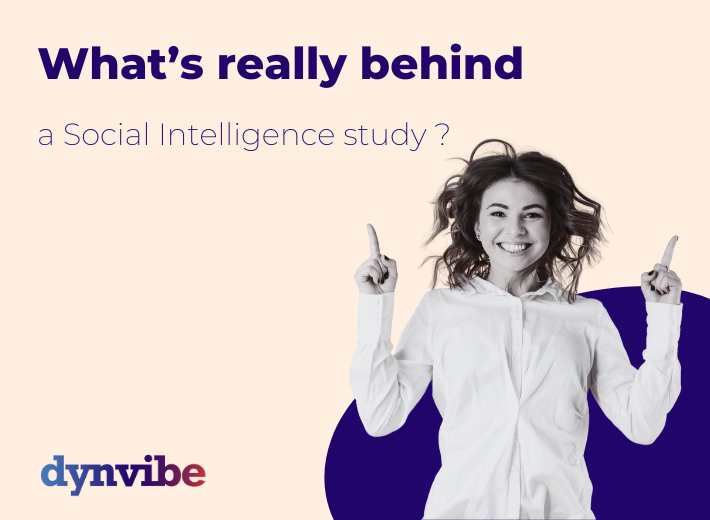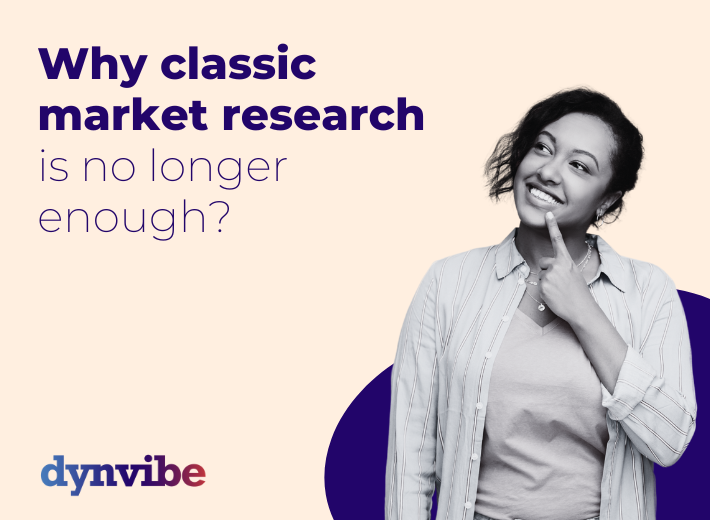5 misconceptions about Social Intelligence (and why they still hold brands back)
- TopicSocial Intelligence
Social Intelligence is not a tool, it's a new mindset
Social Intelligence is becoming a strategic asset for insight, marketing, innovation and influence teams. But many brands are still hesitant to fully integrate it into their decision-making processes. Why? Because it's often misunderstood mistaken for a dashboard tool, restricted to social media teams, or seen as only relevant for younger audiences.
Here are 5 common misconceptions we need to challenge. We’ve heard: “It’s useful for beauty brands, but who’s talking about potato chips?” False: Dynvibe has conducted studies for the French bishops, canned tuna, even erectile dysfunction. Social Intelligence captures everything from niche conversations to the most intimate ones.
1. « There’s too much data, it’s unmanageable »
False. It's not about volume it's about extracting meaning. Yes, social data is massive and chaotic. But in that chaos lies the truth: real usage, raw emotion, and early tensions. With a hybrid methodology (qual + quant), weak signals become actionable insights. Social Intelligence isn’t about listening to everything it’s about listening better.
2. « The insights are too vague to guide strategy »
False. What people say spontaneously is often more revealing than what they declare in a structured survey. Social Intelligence reveals authentic verbatims: frustrations, implicit expectations, real-life comparisons. These aren’t biased by a question frame. They offer an emotional and strategic lens. With expert analysis, they become insights that inform innovation, positioning or messaging.
3. « It’s mostly useful to understand young people on TikTok »
False. All audiences express themselves; you just have to listen in the right places. Young people are active on TikTok and Instagram. But parents, seniors, patients or experts are increasingly present there too, in addition to speaking out on Facebook, Reddit, specialist forums or Twitter/X. Dynvibe’s strength lies in its ability to aggregate these diverse spaces to capture all sides of a given topic. Beyond demographics, the same consumer won’t express themselves the same way on Instagram as they would on a review site.
4. « It’s just dashboards and metrics »
False. Without human analysis, numbers don’t mean much. A listening tool can detect conversation peaks or satisfaction levels. But it can’t tell you why a texture feels wrong or why a campaign falls flat. At Dynvibe, our sector-specialized analysts turn raw data into clear, actionable and prioritized insights.
5. « It’s too marketing-driven — not useful for R&D »
False. It's a strategic tool for de-risking innovation. Social Intelligence helps you :
- Detect emerging or alternative use cases
- Identify unseen product pain points
- Test spontaneous reactions to packaging or formats
More and more R&D and innovation teams are using it to fine-tune their strategies faster and more precisely than traditional tools allow.
Rethinking Social Intelligence unlocks new possibilities
Social Intelligence reconnects brands to the real voices of real people in all their diversity, complexity and spontaneity. At Dynvibe, we believe in hybridization: human analysis, tech and community listening. This combination drives better decisions.
Ready to evolve your insight culture and bring real consumer voices into your decisions?
Get in touch with Dynvibe and discover how Social Intelligence can power your marketing, innovation and influence strategies.

